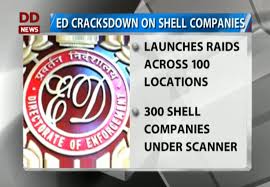 Retailers, both of physical stores and e-commerce entities, fast moving consumer goods (FMCG) companies and those in consumer durables have started rejigging their warehouse strategy.
Retailers, both of physical stores and e-commerce entities, fast moving consumer goods (FMCG) companies and those in consumer durables have started rejigging their warehouse strategy.
This is in preparation for the national goods and services tax (GST), with the government working to an April 2017 deadline. All this could mean a shake-up in real estate, say analysts. A rough calculation suggests these businesses could look at reducing their warehouse count to half, while stepping up the total space acquisition in select destinations, once GST comes into play. In the next two to three years, businesses could see significant cost reduction due to the revised strategy.
Hindustan Unilever, Nestle, Johnson & Johnson and Shoppers Stop are among those to have begun work on consolidating their warehouses, according to a source. These companies will take up mega space, in millions of square feet, to set up ‘mother warehouses’, he said. In the online space, top companies such as Flipkart and Amazon have been on an expansion spree for warehouses and fulfillment centres in the past two years, primarily to suit the complex tax structure through the country. Now, however, they won’t feel the need to have warehouses in every state and can strategise accordingly, Vijaya Ganesh Thangavel, managing director, Land & Industrial (India), Cushman & Wakefield, told this newspaper.
For instance, Max Fashion, a prominent retailer, has eight warehouses totaling 400,000 sq ft. The number is likely to come down to four after GST, says chief executive Vasanth Kumar. “The number will get firmed up once we know the full GST details and the implications such as the reverse logistics needs,’’ he said. Post GST, their warehouse count will be down but the total space covered could go up to around 600,000 sq ft by 2018 “to meet future business needs, as well our rate of growth at a 30-plus per cent CAGR (compounded annual rate)”.
If a typical e-commerce company was taking 300,000 to 400,000 sq ft in metros and tier-1 cities for warehouses, 100,000 sq ft in tier-2 and 40,000 to 50,000 sq ft in tier-3, the plan now will be to go for million sq ft space and more, away from big cities and in fewer locations, primarily where real estate cost won’t be prohibitive, says Thangavel of Cushman. Distribution centres, smaller in size in the range of 40,000 to 50,000 sq ft, could be set up closer to cities.
The biggest trend now is that prominent developers are getting into the warehouse space, which has mostly been a domain of local land owners till recently, according to Thangavel. Along with realtors, a new breed of advisors are coming up, only for warehouse planning. Also, warehouse parks are being set up for large structures. While the exercise of restructuring the warehouses will take a couple of years, he projects a cost reduction of at least 10 to 15 per cent by 2019-2020. Estimates are that big companies which have on an average one warehouse in every state, totaling to anything from 20 to 25, might look at eight to 10, pan-India post-GST.
“We understand that a few of the larger companies have started consolidating their warehousing requirements in strategic locations, in anticipation of GST, with a view to bringing efficiency into their supply chain,’’ said Rami Kaushal, managing director, Consulting and Valuations, CBRE South Asia.
Besides retailers and FMCG companies, even pharmaceutical companies would look at rationalising the number of operational warehouses and swap these for better quality and larger format ones, he said.
“Implementation of GST is expected to lead to rationalisation of warehousing demand, leading to lower logistics cost and reduced delivery time of manufactured goods,’’ Kaushal explained. The current complicated tax structure meant that choice in setting up inventory and distribution centres were based on the tax regime, rather than on operational efficiency, he said.
GST, when implemented, will free the decisions on warehousing and distribution from these tax considerations, according to Kaushal. ”This would enable occupiers to create larger hubs, servicing two or more states from a single location, which would help optimise inventory costs and increase efficiency.’’ This shift in operational planning would ultimately result in a hub and spoke model being adopted by many of the occupiers, he added.
Industrial warehousing space is estimated at approximately 800 million sq ft across the country and is expected to grow by nine to 10 per cent annually. A few sectors such as e-commerce, modern retailing and FMCG are expected to grow at about 20 per cent annually in the short term, according to CBRE.
A recent JLL report listed the National Capital Region, Mumbai, Pune, Bengaluru, Chennai, Hyderabad, Kolkata and Ahmedabad as top warehouse hubs. These eight city hubs together had a cumulative supply of organised Grade-A and Grade-B warehousing space of around 97 mn sq ft in 2015; this is expected to grow to around 116 mn sq ft by the end of 2016. It added that GST will result in emergence of new hubs such as Belgaum, Bhubaneswar, Coimbatore, Goa, Guwahati, Indore, Jaipur, Kolhapur, Lucknow/ Kanpur, Ludhiana, Nagpur, Patna, Raipur, Ranchi, Vapi and Vijayawada.






